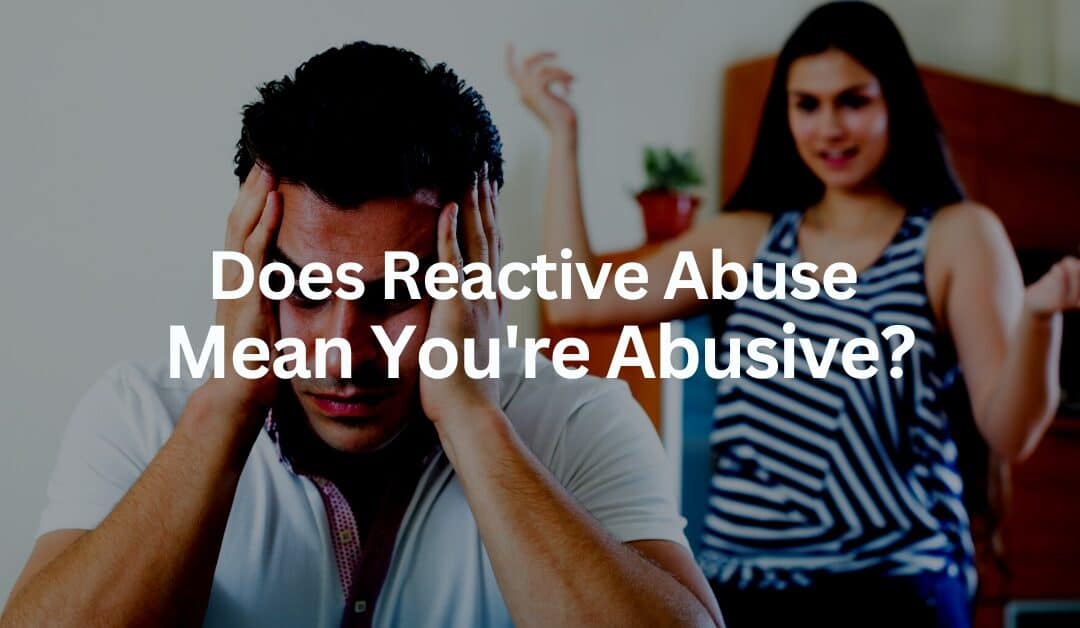It’s not always easy to know when you’re in an abusive relationship. Many people think that abuse is only physical, but that is not the case. Emotional and verbal abuse can be just as damaging as any other type of abuse. And when a domestic violence victim reacts to their abuser’s aggression with insults, violence, or yelling of their own, it may be in self-defense.
However, in the eyes of the law, it can sometimes be difficult to tell who is really abusive and who is just reacting. Learn more about reactive abuse, why it happens, and how to protect yourself and your family!
What is Considered Abusive Behavior?
Domestic abuse happens when you face abuse, harassment, or intimidation at the hands of someone you have a personal relationship with, including:
- Former or current spouse
- Household member
- Boyfriend/girlfriend
- Your parent
- Your child
In healthy relationships, an intimate partner has no need to maintain power over another or avoid responsibility for their actions.
North Carolina law has a legal definition of domestic violence that includes acts of:
- Attempting to cause bodily injury
- Intentionally causing bodily injury
- Placing you or your child in fear of imminent serious bodily injury
- Sexual offenses such as rape or sexual assault, or battery
- Continued harassment and stalking if it’s causing you substantial emotional distress
Understanding the legal definition of domestic violence can help you comprehend why it is essential to obtain protective orders. Domestic abuse is a criminal act, and taking proactive steps for your safety must be top priority.
Reactive Abuse is Actually a Form of Self-Defense
However, when a family member or partner engages in emotionally or physically abusive behavior, the victim often responds by eventually reaching a breaking point. This is when reactive “abuse” occurs.
Often, mechanisms of self-defense get called “reactive abuse” or “reactive outbursts” when a victim responds to abuse by resorting to physical violence or other abusive behaviors.
However, the abused person does not become an abusive person by acting in self-defense. They are not starting a physically aggressive action but instead are defending themself from continued abuse. The term reactive abuse is not the best description of what is happening.
An abuser’s behavior can make a victim feel a fight or flight response where stress hormones react against the power and control of the abuser. Family members and others may not see that the abuser’s actions cause the victim’s reaction and assume that the victim is unstable or mentally ill. The lack of support can make the victim feel guilt over their own behavior.
However, reacting to abuse is a normal and natural response that abusers rely on so that they can play the victim card and shift blame. An abuser tends to want to show proof that the victim is accepting responsibility for the abusive behavior. In this way, the primary abuser can continue to abuse others and destroy the victim’s sense of self further.
Mutual Abuse
Mutual abuse in a relationship is when both partners in a relationship try to gain control of the other in abusive ways. Whether emotional abuse, psychological abuse, or violence is the method used in a mutual abuse situation, both partners are equally engaged in hurting each other.
Finding Help Out of An Abusive Relationship
If you’re suffering in a relationship where abuse occurs, it makes sense to stop reacting and start finding help for your physical and emotional well-being. Instead of waiting until the abuser makes things worse, talk with a domestic violence attorney to get a Domestic Violence Protective Order (DVPO) and find safety.
A DVPO is a type of civil restraining order. It is also called a “DVPO” or “50B.” A 50B protective order files a suit asking the law and officers of the law to help protect you and any children. It places limitations on what the abuser can and cannot legally do.
While finding a legal way to protect yourself and any children is crucial, also consider finding professional help you need to work through your next steps.
Contact the North Carolina Coalition Against Domestic Violence or find help across the state at NC Council for Women’s Domestic Violence Programs Directory. Or call the National Domestic Violence Hotline at 800-799-7233.
We Can Help
At Cape Fear Law, our domestic violence attorneys understand the difficulties of being involved in an abusive relationship and are here to help. Reach out to us today for legal support and protection.
We can provide you with experienced family law services that will assist you in filing a Domestic Violence Protective Order (DVPO). We’re here to help protect your physical and emotional well-being, so get in touch with us today.
Together, we can create a safe future for you and your family.

